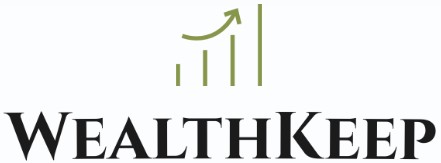
Beyond fear and greed, other powerful behavioral biases can be found in almost all investors, both private and professional, and are often exhibited by enduring habits and behaviors that are very difficult to self-identify. These biases inform our bad decisions, the mistakes that we continue to make without even realizing that we are making them, let alone why.
Discipline is a valuable commodity when it comes to managing your personal finances, yet we often find ourselves stuck on the bumpy road of bad decision making. We humans are hard-wired for recognizing patterns of behavior and making decisions on the patterns we already know and see, but when it comes to investing real money in real markets, our vision and judgement may be clouded by a number of fact-patterns we don’t anticipate, or worse, decided to ignore because our ego got in the way.
Nobody likes an armchair quarterback, and we don’t want to be accused of trying to be armchair psychologists! Our goal is to examine and understand some of the most prevalent behaviors that can derail your portfolio, offer ways to identify them and seek potential solutions.
Bias: Overconfidence
 Humans are overwhelmingly overconfident about their abilities to do just about anything. We routinely find comfort in believing we are smarter and more capable than just about everyone else, and because of this, we may deceive ourselves into believing our good fortune in the stock market was actually a product of our superior skill. Bull markets make geniuses.
Humans are overwhelmingly overconfident about their abilities to do just about anything. We routinely find comfort in believing we are smarter and more capable than just about everyone else, and because of this, we may deceive ourselves into believing our good fortune in the stock market was actually a product of our superior skill. Bull markets make geniuses.
Because of our soaring confidence we possess powers that others do not. We have a keen intuition, we are the masters of strategies the rest of the street envies, and of course, we look better and smell better, too. These self deceptions are truly dangerous. As investors, we can never afford to buy our own BS, but after we do, it’s too late.
Overconfidence in practice
You did well, really well in the final leg of the most recent bull market. You knew what you were doing, and you can do it again, and again, anytime you want to actually. Or so you’ve convinced yourself. You’ve taken the often fatal misstep of believing that you are smarter than the market (i.e. everybody else). Therefore, you decide it’s time to really ramp things up. You bet the farm, and all the livestock, too.
Our old friend “inevitability” is about to knock you right on your assets. The bull market fizzles, along with your supernatural powers. And your money.
Takeaway: Overconfidence will necessarily lead to a tail-whipping you will never forget!
Overcoming Overconfidence

A long overdue reality check is in order.
Markets can be merciless. Check. Markets don’t care who you are, what you know or what you think you know. Check. Markets always find a way to punish the overconfident with losses that can occur at the speed of light. Check.
It’s time to get back to your emotional drawing board.
First, it’s time to admit you don’t know it all. It’s time to put critical thinking back into play and do the work. It’s time to do your research and be deliberate about decisions, and be brutally honest with yourself about your skill level. Take your ego out of it, learn from your mistakes and ask for help.
…the market giveth, and the market taketh away…
Next, take the necessary time to understand the true nature of the beast, and become coldly rational about decision making. Never let your emotions into your portfolio. Learn once and for all that the market giveth, and the market taketh away, and you are not going to outsmart it in the long run.
 You’re not a fortune teller, so make decisions on what you learned from researching the opportunity.
You’re not a fortune teller, so make decisions on what you learned from researching the opportunity.
When things change, don’t panic, but see it as an opportunity to make the necessary battlefield corrections or change your strategy altogether if need be.
It’s time to understand that investing is not a hobby or a pastime, and it definitely doesn’t exist to feed your ego. You can’t allow your emotions to seep into your portfolio, understanding the true nature of the beast requires you to become coldly rational about decision making.
Learn once and for all that the market giveth, and the market taketh away, and you are not going to outsmart it in the long run. You are not a fortune teller, so making decisions on what you learned from doing the work and researching an opportunity, and making decisions within the framework of your personal investment policy statement is the way to beat overconfidence.
Overconfidence and its sister, ego, often travel together, so as conditions change, you need to look at the new facts, the new situation and make the necessary battlefield corrections or change your strategy altogether, rather than be prideful and stick with a bad situation because of ego.
Forward planning will often allow you to minimize or avoid these cut and run moments.
Confidence is an admirable trait, but overconfidence can often cause unforced errors. Genuine confidence in investing comes from skills developed over time, built on a foundation of decisions grounded in research, reason and fact. This won’t make you infallible, but it will make you a better investor.

